Covid-19: School rapid test cannot be overruled, says minister
- Published
- comments
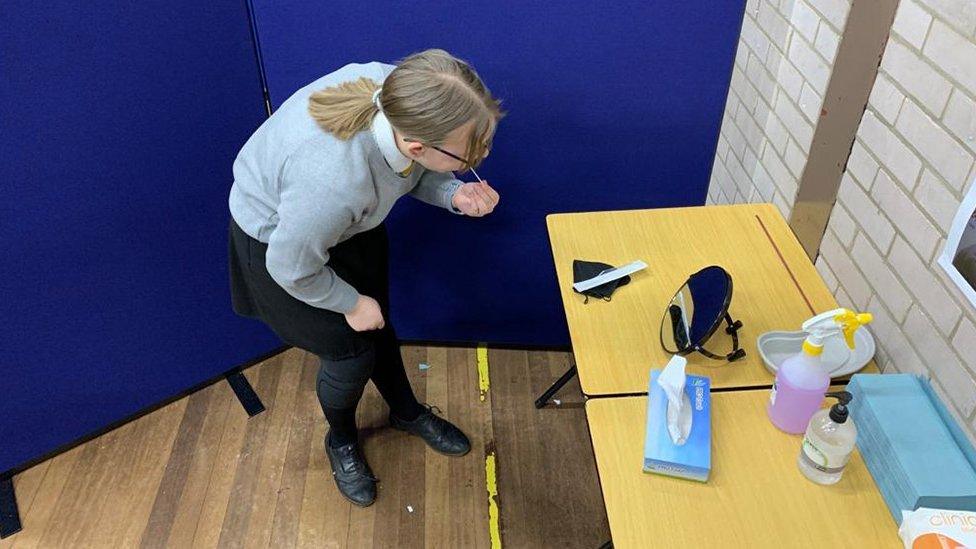
Pupils will be asked to take tests on their return to school
The government is sticking to the rule that a positive rapid Covid test done in secondary schools in England cannot be overruled by the gold-standard tests processed by labs.
Concerns have been raised by testing experts that significant numbers could be incorrectly told they are infected.
They have called for all positives from the rapid testing done in schools to be confirmed by the standard PCR test.
This is what will happen when testing is done at home after next week.
It will mean a pupil who tests positive at home with a rapid on-the-spot test - known as a lateral flow test - will have to isolate on the basis of that test, but will be told to get a PCR test which is processed in a lab.
If that PCR test is negative they will be released from isolation.
But for those done in schools - pupils are being offered three tests in the next two weeks - it will be assumed the lateral flow test is right. A PCR test cannot overrule the lateral flow test.


'My kids are stuck at home - it makes no sense'
One of those who has been affected already is the family of Richard Patton, from Derbyshire.
His son tested positive after his school started rapid testing last week, so Mr Patton arranged for the 17-year-old to get a PCR test, which came back negative.
But the whole family, including his 15-year-old daughter, is still having to isolate at home.
"It makes no sense. They were looking forward to going back to school and are now stuck at home."
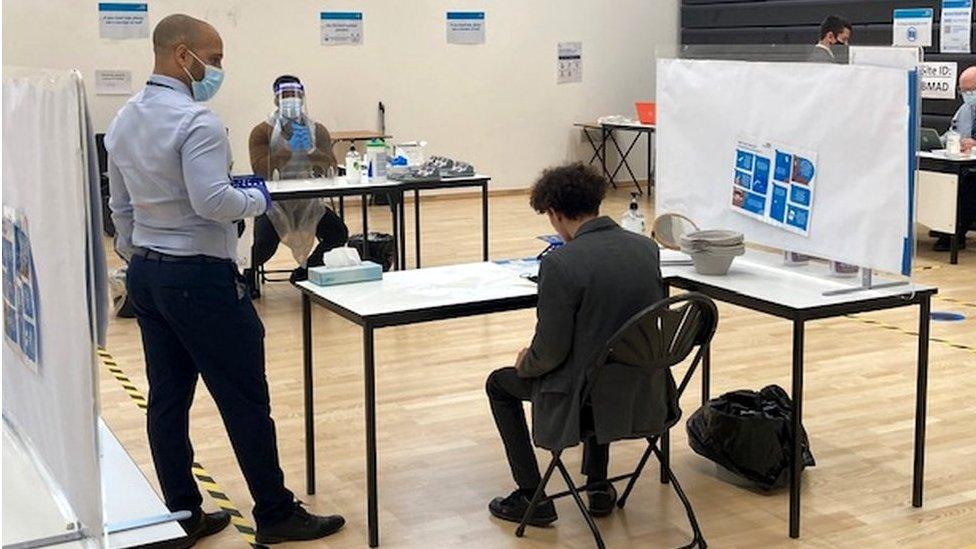
Testing has already been operating in schools open for key worker and vulnerable children
The Royal Statistical Society is one of the bodies which wants to see all positive tests in schools confirmed with a PCR test to avoid such cases.
Prof Sheila Bird, a member of the society's Covid-19 Task Force, has said false positives were "very likely in the present circumstances" because the large-scale testing, coupled with the low infection rates, meant the number of false positives could outnumber the true positives.
However, Schools Minister Vicky Ford insisted the approach was right.
She told BBC Radio Four's Today Programme that the chances of a false positive - where a pupil is incorrectly diagnosed as having the virus - was "very low".
She said pupils who test positive via the lateral flow tests done in schools will need to isolate, along with their families and close contacts and "should not take a PCR".
"The really important thing is to make sure we can keep schools open and minimise the risk of Covid in classrooms," she said.

How the slim chance of false positives could add up

The chance of false positives may be very low as ministers suggest. But given that millions of schoolchildren are being offered a test, it could still lead to thousands of people having to self-isolate for no reason.
If just half of pupils take up the offer of three tests in school, and the false positive rate is 0.1%, that would lead to around 6,000 pupils being asked to isolate at home over the next week or so when they are not infected.
The rest of their family will also have to isolate, which means if they have siblings, they too will miss school. What is more, if the positive comes from the second or third test then the individual's close contacts in school will also be affected.
It means many thousands of children could be wrongly denied the chance of being in school after already spending the past two months at home.
But what is particularly baffling experts is that it is so unnecessary. Getting the test confirmed by a PCR test processed by a lab would solve the problem. By sticking to their guns, ministers could end up undermining the whole initiative.

It is unclear what the true false positive rate will be in school settings. Research by Public Health England has suggested it could be as high as three for every 1,000 tests done, but other studies have suggested it is nearer one.
The testing done in schools in recent weeks for the children of key workers and teachers show the number of tests returning positive results is in line with the lower estimate, suggesting a significant number of tests could be false positives.
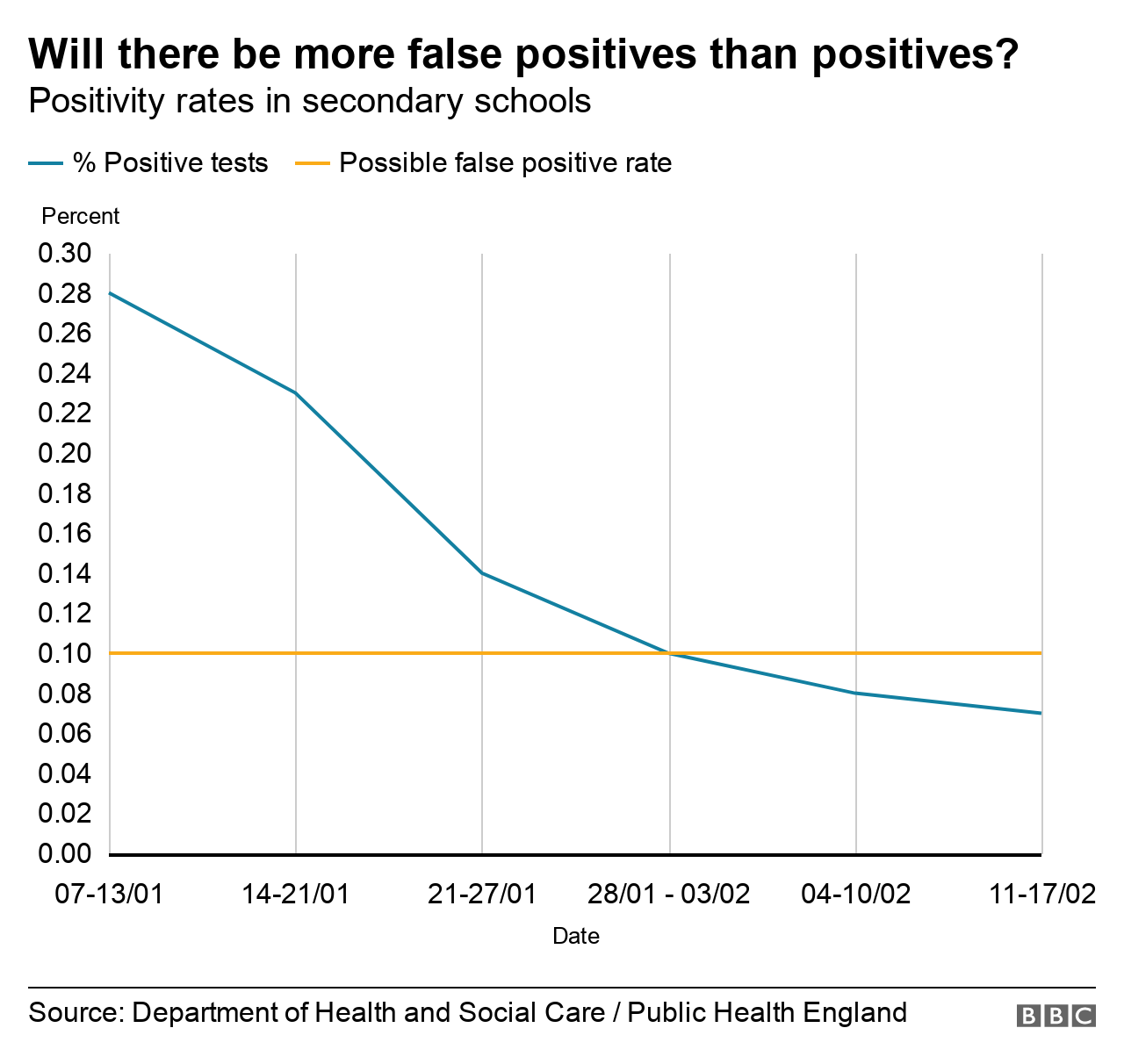

University of Bath mathematical biologist Dr Kit Yates warned that the government's stance could undermine confidence in the testing policy.
"Not confirming less accurate lateral flow positives with more accurate PCR tests will put people off testing their kids. It's as simple as that."
Primary school children are not being asked to take rapid tests, but families can request tests for use at home.
Related topics
- Published4 March 2022

- Published22 February 2021
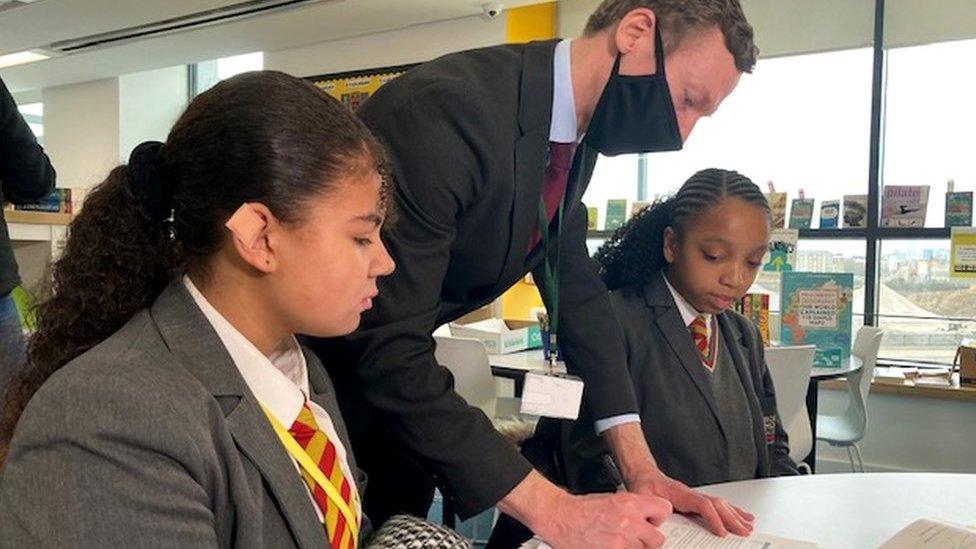
- Published28 January 2021
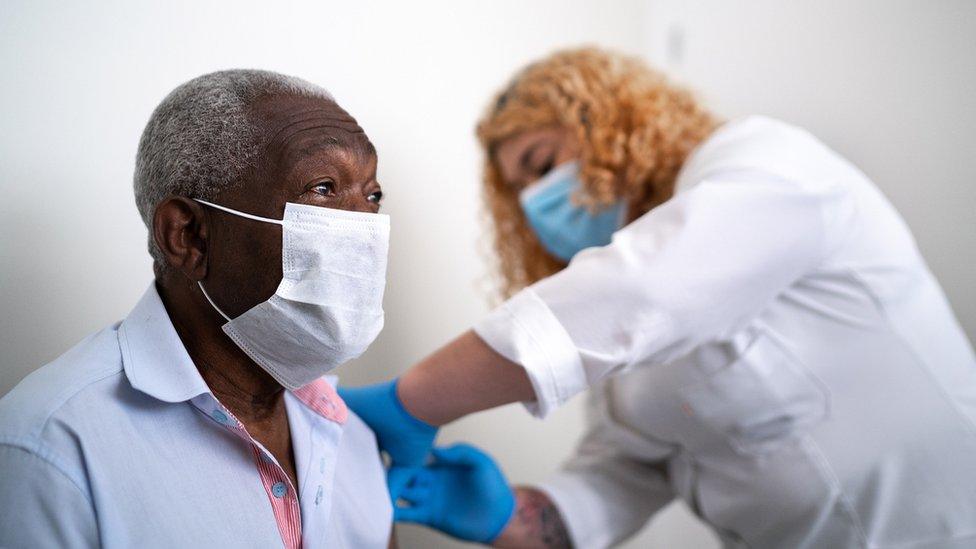
- Published23 February 2021
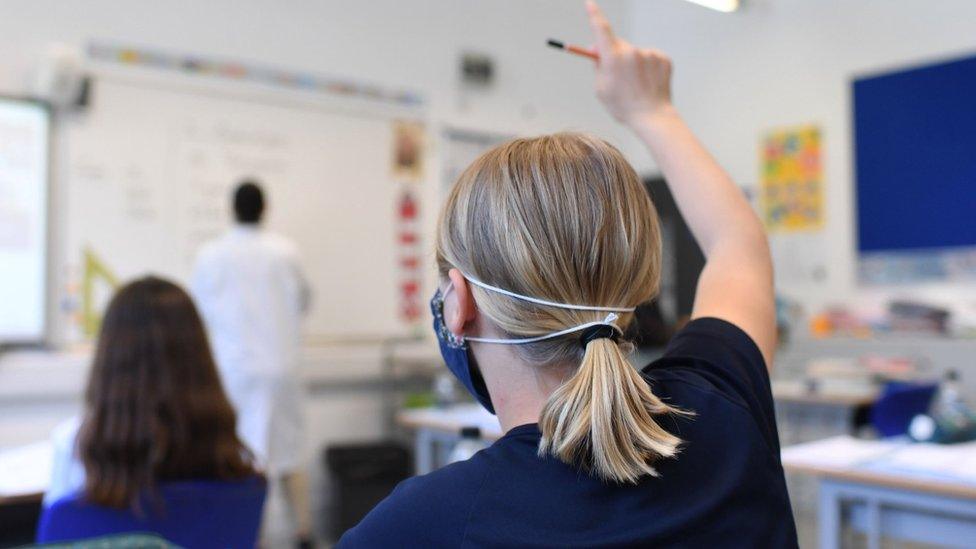
- Published5 July 2023

- Published2 April
